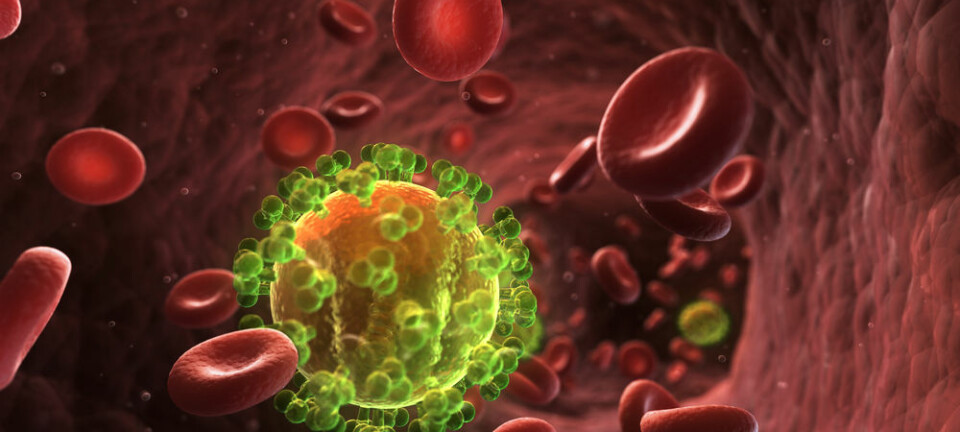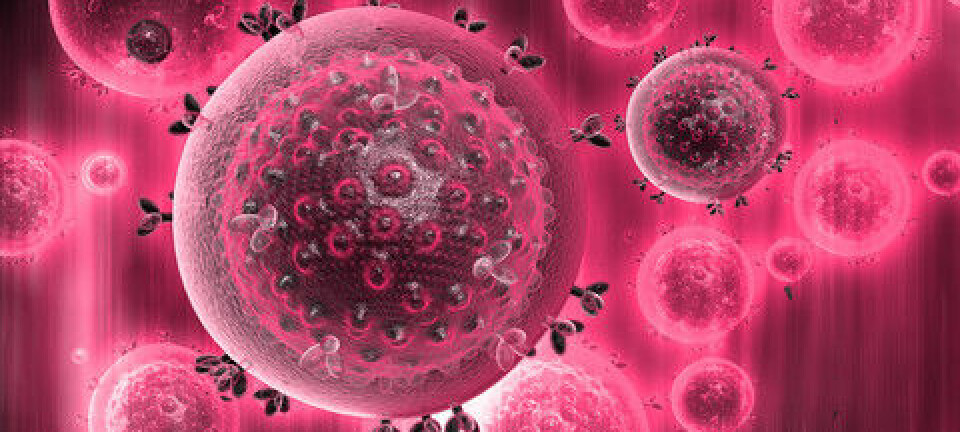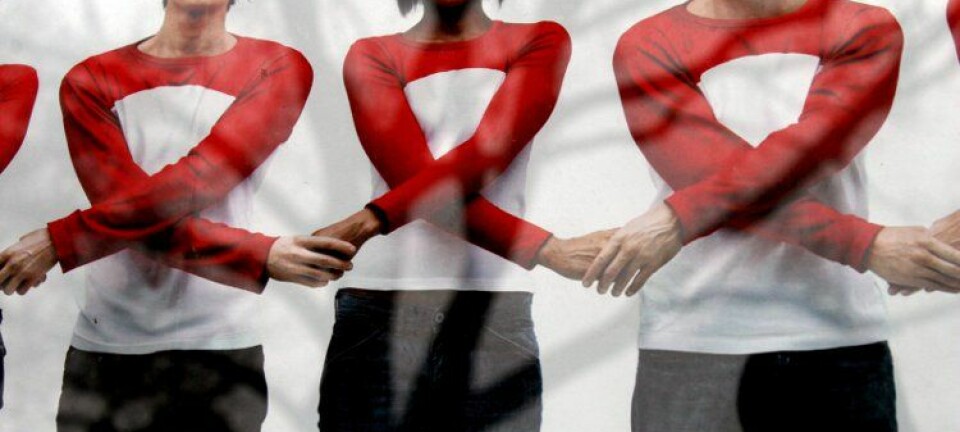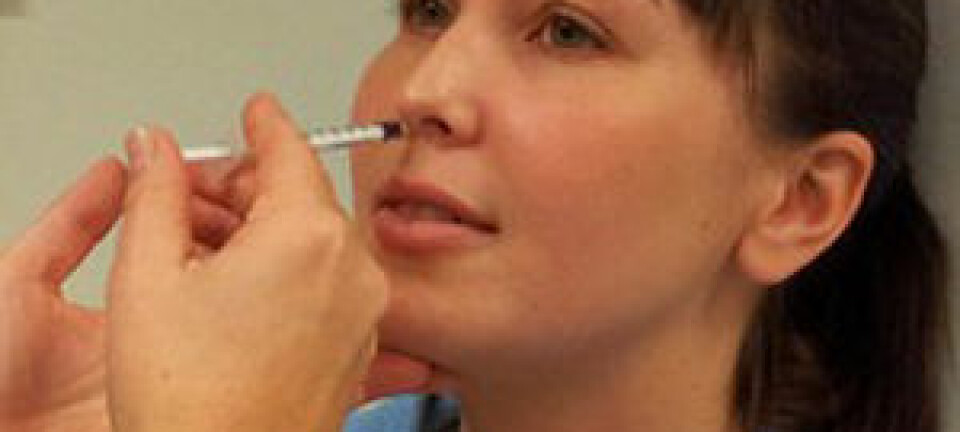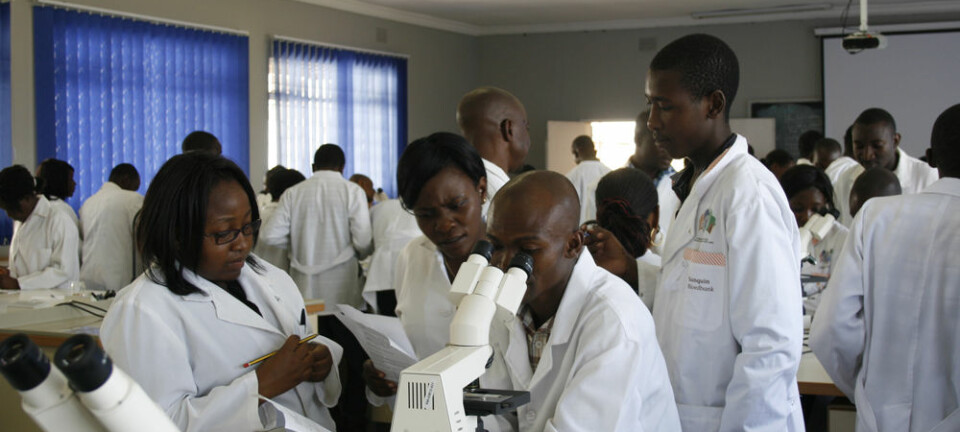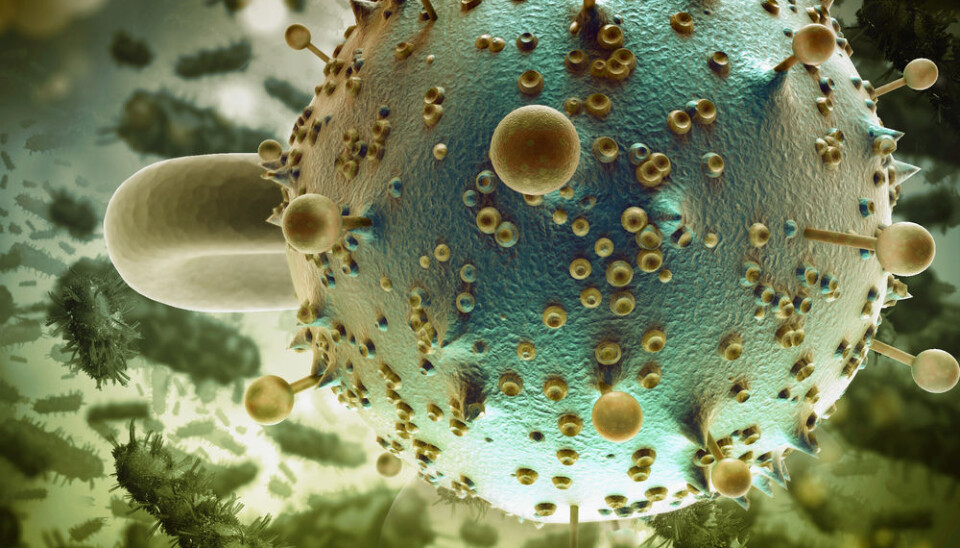
Can HIV be eradicated?
Scientists set out to eliminate HIV entirely from the body.
Imagine if it was possible to eliminate HIV from the body entirely instead of only keeping it at bay like modern drugs do.
That’s exactly what a team of Danish, American, and German scientists are hoping to do by combining two types of medicine in a “super cocktail” that is extremely toxic to the resilient HIV virus.
"It's a very important step on the way to finding a cure for HIV," says project leader Ole Søgaard, MD, a senior researcher at the Aarhus University Hospital. "I'm quite optimistic and believe we’ll see an effect."
Søgaard’s enthusiasm is echoed by Professor Niels Obel, MD, who leads another large HIV research project at the University of Copenhagen, Rigshopsitalet.
"I can imagine a future in which we’ll be able to entirely eliminate HIV from the body,” he says. “For that reason I think this project opens up for some perspectives.”
Dangerous cocktail with antibodies from a super-patient
The first step on the way to a cure is to activate the HIV, which can hide itself in the immune system's own cells where they lie dormant and safe from the body's defences.
Last year, the same team of scientists successfully lured the virus from its hiding place with the anticancer agent romidepsin.
"The general idea is to get the HIV, which conceals itself in the cells of the patient's immune system, out onto the surface of the infected cells so they can be recognised by the immune system," says Søgaard.
"But what was missing was a killer mechanism to kill off the newly recognised HIV-infected cells. What’s new is that we’re now combining romidepsin with another drug which contains highly effective antibodies from a patient who was exceptionally good at fighting the immune cells infected with HIV," he says.
Cloned cells conceal the recipe for an efficient HIV killer
The human body constantly produces antibodies but when it comes to HIV, something special is needed. This is why the choice was the super-patient, whose cells are able to produce especially powerful antibodies.
"The part of the cell which is able to produce the antibody is cloned and then reproduced," explains Søgaard.
A total of 30 patients, from Aarhus, Cologne, and New York, will participate in clinical trials over the next two years. Søgaard thinks it looks promising:
"I believe the number of HIV infected cells in our trial patients will decrease."
It takes some doing to beat modern HIV medicine
More will be needed if they are to find a complete cure for HIV.
To beat currently available treatment, they’d have to activate all the dormant HIV viruses in the immune cells and subsequently eradicate them completely from the patient's body.
"Modern treatment, which is all about keeping the virus down, is now so effective -- compared with just 10 to 15 years ago -- that we’re now able to treat all HIV patients,” says Obel. “So to be cutting edge, new medicine must therefore be able to eradicate the virus entirely.”
He does, however, believe this is possible.
"Although Hepatitis C is a very different kind of disease than HIV, it’s a good example of what can be achieved. These days we can cure Hepatitis C in more than 90 per cent of patients," says Obel.
This is a tremendous advance compared to just ten years ago.
Søgaard and his team of researchers is counting on beginning the clinical trials as early as autumn 2015.
---------------
Read the original story in Danish on Videnskab.dk
Translated by: Hugh Matthews
